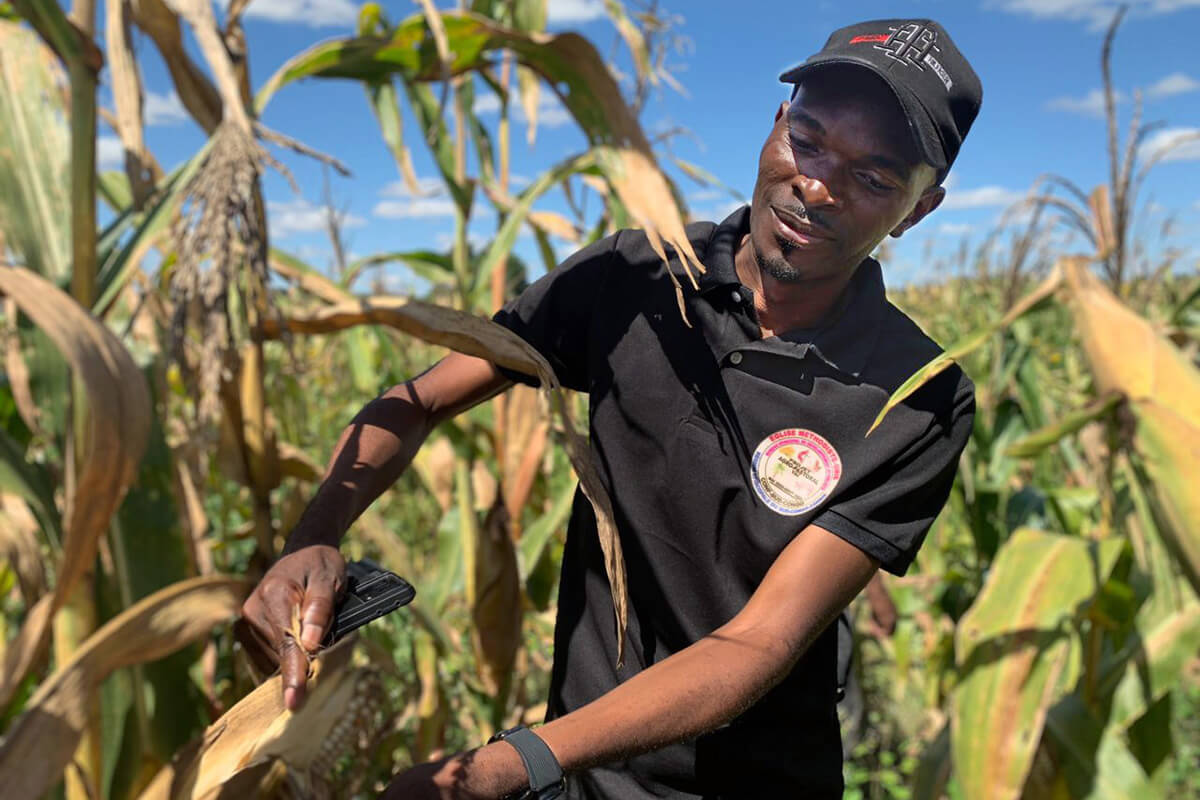Key points:
- With financial support from the Yambasu Agriculture Initiative, United Methodists in the South Congo Conference have launched a series of farming projects.
- Beneficiaries say the projects provide food and financial stability for families.
- Earlier this year, the products from the farms fed attendees at two annual conference sessions in Congo.
United Methodists in the South Congo Conference are tackling food insecurity through new church farming projects that are transforming lives and sowing the seeds of self-sufficiency.
With funding from the United Methodist Board of Global Ministries’ Yambasu Agriculture Initiative and under the leadership of the church’s Development and Projects Office, the church is rolling out a series of large-scale agropastoral projects that combine growing crops and raising livestock.
Launched in 2020 in honor of the late Bishop John K. Yambasu, the initiative aims to make the African church and its communities more self-sufficient through agriculture.
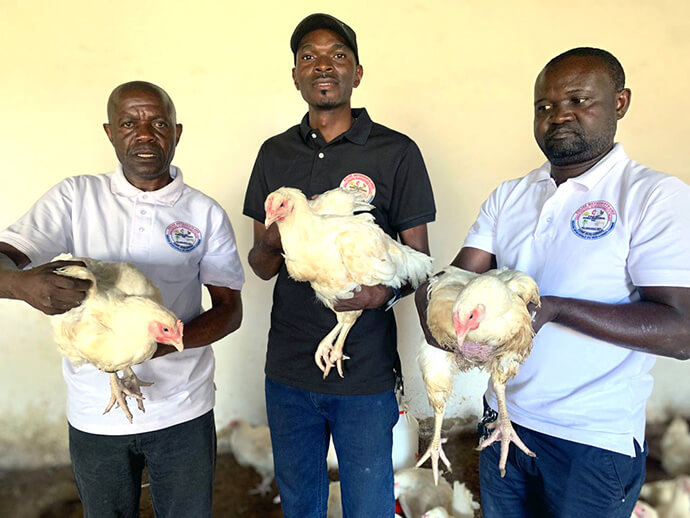
At the heart of the church’s fight against food insecurity in southern Congo is the Kingandu agropastoral site, about 45 kilometers (28 miles) north of Lubumbashi. What was once fallow land is now a bustling production center.
The project started with a flock of 1,500 laying hens and a cyclical production of 1,500 broiler chickens, organized in groups of 500 to ensure a constant supply. At the same time, more than 15 hectares have been dedicated to corn cultivation and 5 hectares to soybeans.
In the village of Milandu, located about 80 kilometers (50 miles) from Lubumbashi on the road to Kasenga, another large-scale project is developing with the breeding of some 60 pigs.
According to engineer Sabin Mulang, Yambasu Agriculture Initiative project manager for the South Congo Conference and director of Development and Projects, the initiative follows a thoughtful and innovative agricultural strategy.
“The goal is clear: to combat hunger and dependence on food imports that weigh heavily on this region of the country,” Mulang said.
The projects implement practical methods such as conservation agriculture, which minimizes tillage and maintains permanent vegetation cover to reduce erosion and improve soil health, he said.
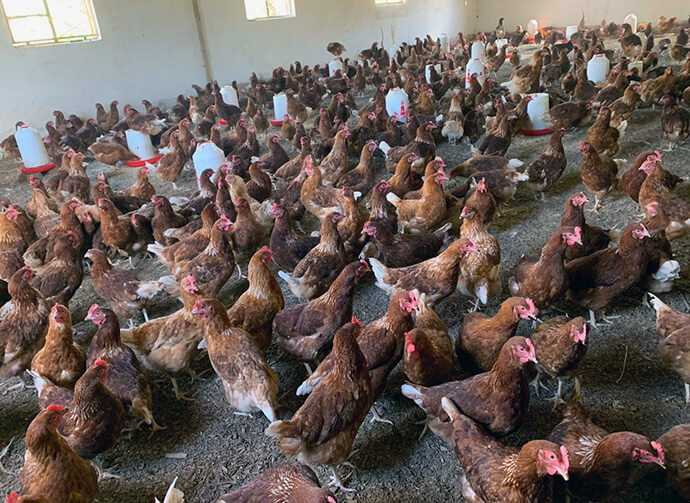
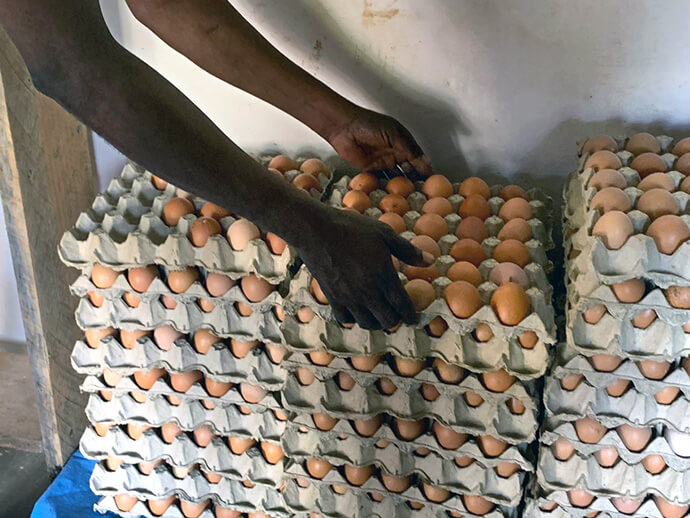
Agroecology, which mimics natural ecosystems, and intercropping are also used to strengthen crop resilience and reduce the need for chemical pesticides. The selection of resistant seeds and the introduction of new breeds of poultry complete the approach.
The impact on local food security is already palpable, Mulang said.
How to help
Donations to the Yambasu Agriculture Initiative can be made through the United Methodist Board of Global Ministries Advance #982188.
“We have moved from analyzing needs to making concrete improvements in our beneficiaries’ food production,” he said. “Crop diversification has not only improved access to a variety of foods but has also begun to stabilize food prices for households.”
Some of the products from these agropastoral farms were used to feed participants at the Southwestern Congo and South Congo annual conferences in June.
According to Dialon Kitenge, second associate leader and chair of the coordination of the South Congo Annual Conference, this is the first time that delegates in the episcopal region have eaten products from a church project during an annual conference.
“The eggs were served as omelets for breakfast, while the pork was consumed at meals by the delegates, to their great satisfaction,” Kitenge said.
Trésor Mukikisi, a young United Methodist, said that eating eggs and chickens produced by the church “makes me want to thank the church authorities and encourage them to do even better.”
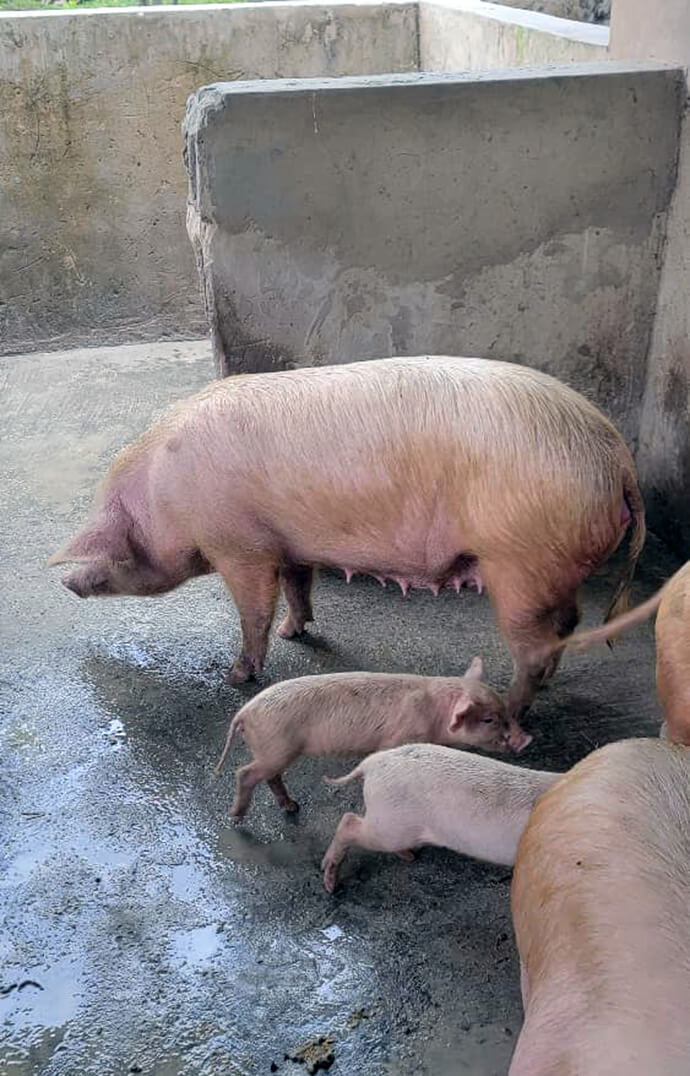
The Rev. Ndumba Felicien, an agronomist with the episcopal area’s development office, is among those training local communities. For corn, soybean and cassava crops, specific techniques are taught from the selection of suitable varieties to integrated crop protection.
“We are setting up a mentoring system where experienced farmers accompany new ones,” Felicien said.
Despite obstacles such as a lack of financial resources and climate hazards, the project is finding solutions.
“We are working with partners on financing programs and encouraging the adoption of sustainable agricultural practices such as efficient water management,” Felicien said.
Beyond production figures, the true success of the Yambasu Agriculture Initiative in the region can be measured in the daily lives of families.
Thérèse Nkulu shared with UM News that this project has given her family stability.
Subscribe to our
e-newsletter
“Before the project, we lived from day to day,” she said. “Now, thanks to the seeds and support, we have harvested more bags of corn than ever before. We were able to sell some, keep some flour and even pay for school fees.”
For Joseph Kapenda, animal husbandry has been a revelation.
“Today, I sell eggs and chickens, which helps me buy medicine for my family. I sold two piglets to pay for school fees,” he said. “Animal husbandry has put me back on my feet.”
The initiative also has a strong impact on women’s empowerment.
“I learned how to turn soybeans into pig feed,” Esther Kalenga said. “Now my children have enough to eat, and I am respected. It has given me back my dignity.”
Within the community, the perception of the church itself has changed.
“The church doesn’t just preach, it acts. It is a living church that shows God’s love through concrete actions,” Nkulu said.
The Rev. Chikomb Katshung, first deputy legal representative for the episcopal area, said that the Yambasu Agriculture Initiative is more than a set of projects.
“It is a movement that restores hope and dignity, proving that with a clear vision, technical expertise and community commitment, the fight against hunger can be won,” he said.
“The United Methodist Church is not only feeding bodies; it is cultivating a sustainable future for the Democratic Republic of Congo.”
Kasweka is director of communications for the South Congo and Zambia Episcopal Area.
News media contact: Julie Dwyer at newsdesk@umnews.org. To read more United Methodist news, subscribe to the free UM News Digest.

